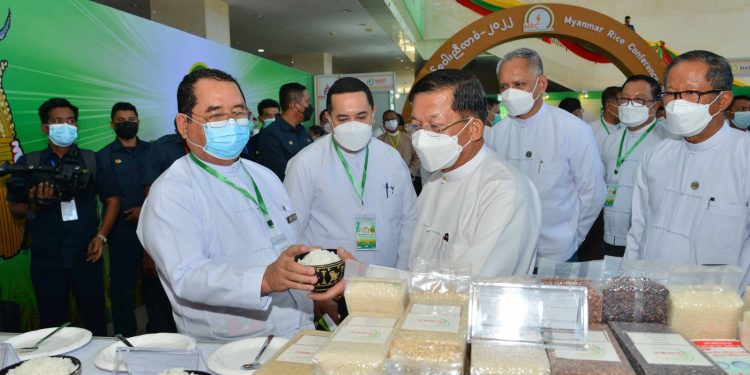Economic delusions persist
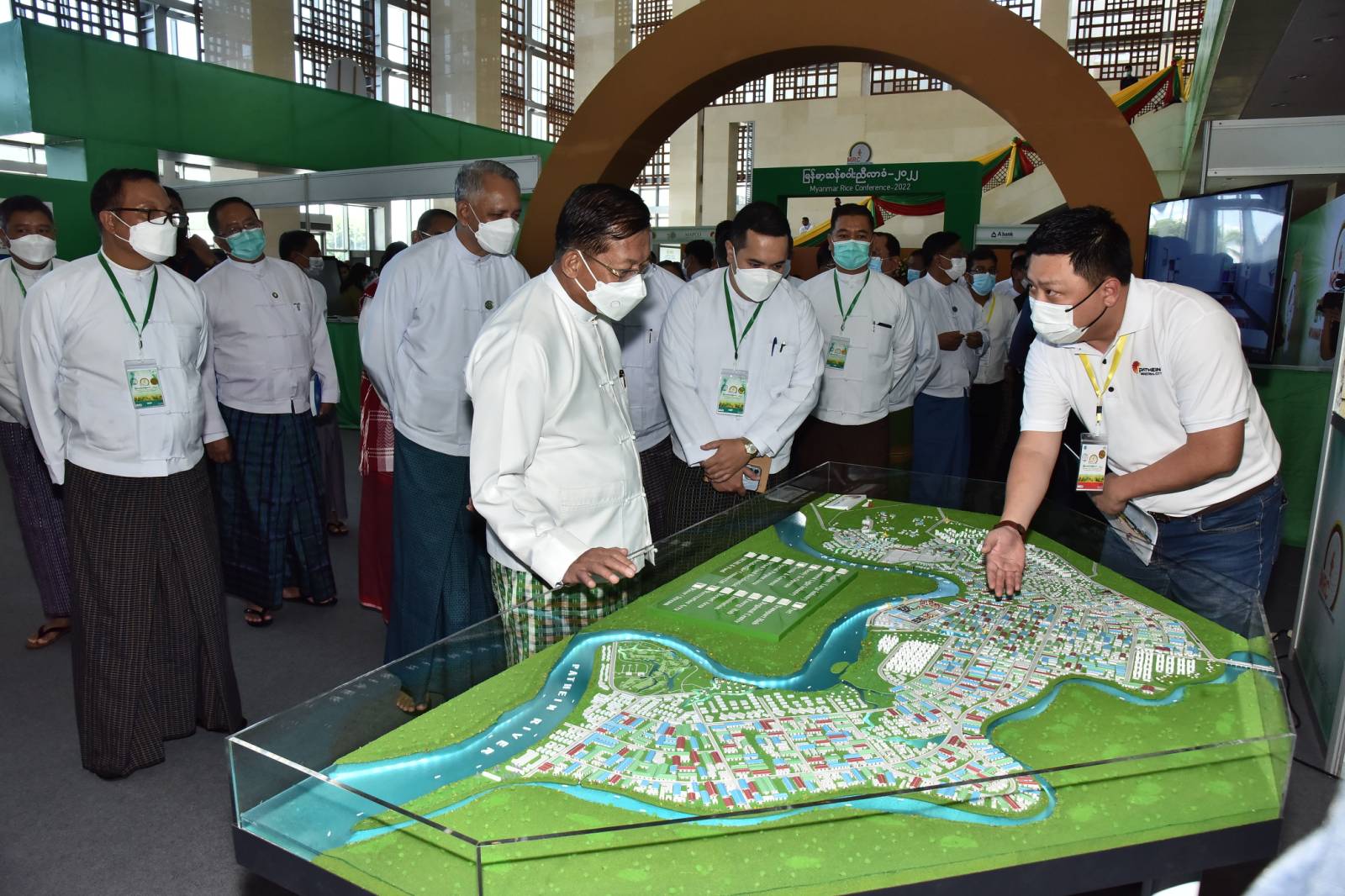
After making a vow in August to revive the country’s economy, junta chief Min Aung Hlaing told small and medium enterprises (SMEs) in Bago’s Pyay Township on Tuesday that the economy is recovering, without explaining how he came to this conclusion.
While the World Bank predicts 3 percent growth for the fiscal year ending in September, after an 18 percent contraction last year, it warns that the outlook remains weak and subject to substantial risks.
Min Aung Hlaing has been meeting SME business owners in Mandalay, Meiktila, Yangon and Pyay, with the stated purpose of facilitating SME development. Individual socioeconomic development will lead to regional and national development, he told the business owners during those meetings.
But high unemployment, a surge in the cost of living—including increased prices of basic foods, medicines, fuel and other consumer goods—a paralyzed banking system, and an exodus of foreign investment are surely not the signs of an economic recovery.
Regime boss surpasses master in loathsomeness
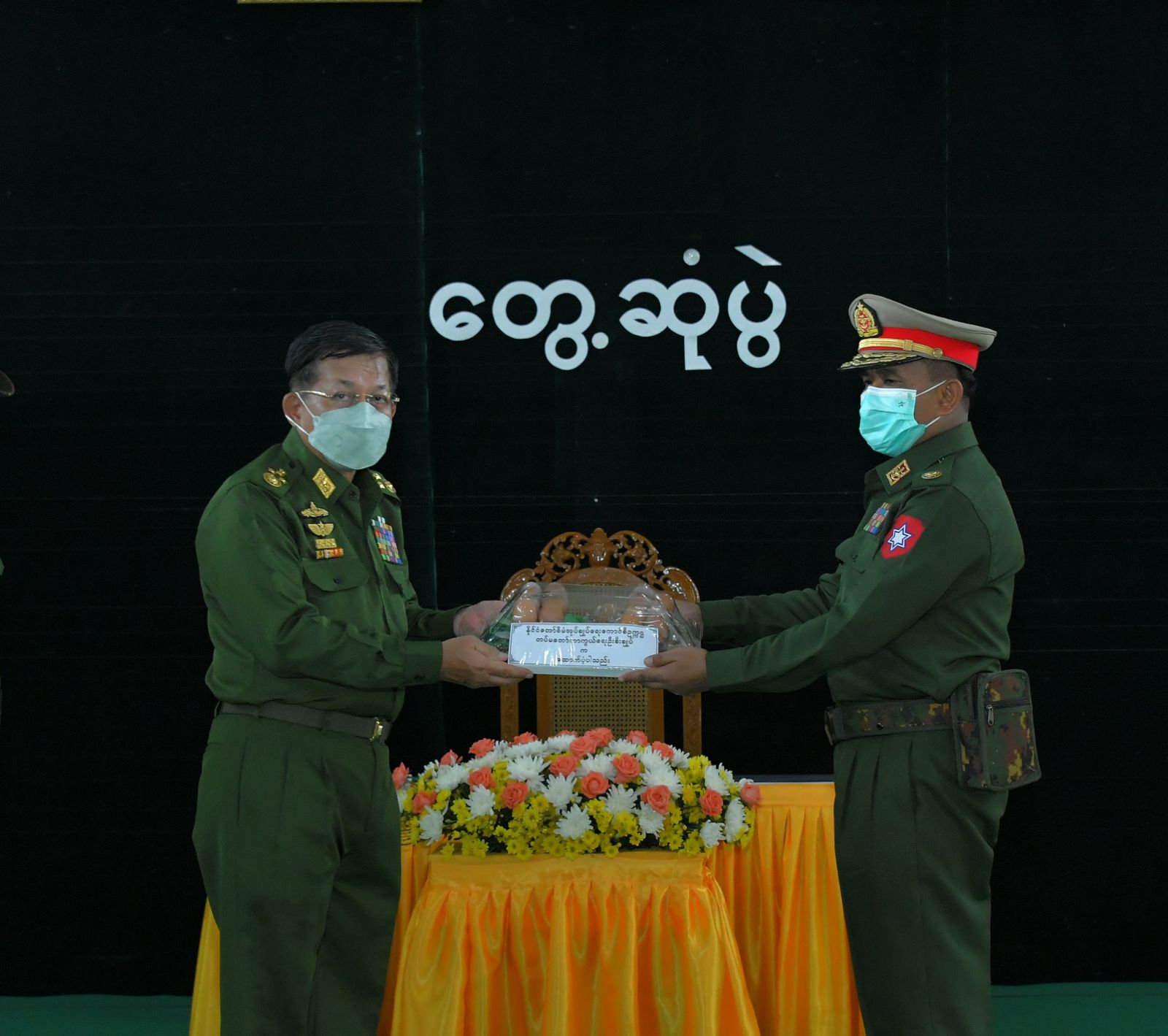
Myanmar people’s loathing for the military dates back to the 1988 pro-democracy uprising when the army—just as junta chief Min Aung Hlaing is doing today—slaughtered pro-democracy protesters and persecuted dissidents.
At a meeting with officers and other ranks in Bago’s Pyay Township, Min Aung Hlaing criticized the previous regime led by his mentor, former Senior General Than Shwe—which called itself the State Law and Order Restoration Council (SLORC) and later the State Peace and Development Council (SPDC)—saying people might have negative views of the army because of administrative errors made during the SLORC/SPDC era.
Blowing his own trumpet, he said that he could improve and deepen relations between the military and the people.
It is difficult to say if Min Aung Hlaing is conceited or just delusional to have said this, given that under his command the military has killed thousands of people, and bombed and torched many villages in just a year and eight months since the coup.
Min Aung Hlaing apparently is not aware of media reports about resistance attacks on junta troops, and reports of junta casualties are the most liked and shared posts on social media.
In 2011, Min Aung Hlaing was handpicked by Than Shwe to succeed him as the military chief, a position he had held for 18 years as the military dictator. Despite his criticism of his predecessor, Min Aung Hlaing is at the same time following in Than Shwe’s footsteps, while indisputably wanting to show that he is better than his master.
Emulating the “SLORC Ruby” from Than Shwe’s era, Min Aung Hlaing said he had received a ruby and named it after his regime, which is officially titled the State Administration Council. His ruby, however, is even bigger than the SLORC Ruby, he said. He has also inherited white elephant mania from Than Shwe, and even boasted that a baby white elephant that was born a few months ago under his rule possesses more of the requisite traits for white elephant status than previous specimens found under Than Shwe’s rule.
While Than Shwe ordered the construction of the Kyauk Taw Gyi Temple, which enshrines the largest marble Buddha image in Myanmar, Min Aung Hlaing is also having a Buddha statue—touted as the world’s biggest sitting Buddha image—built in Naypyitaw.
Troops urged to fight ‘in solidarity with the people’
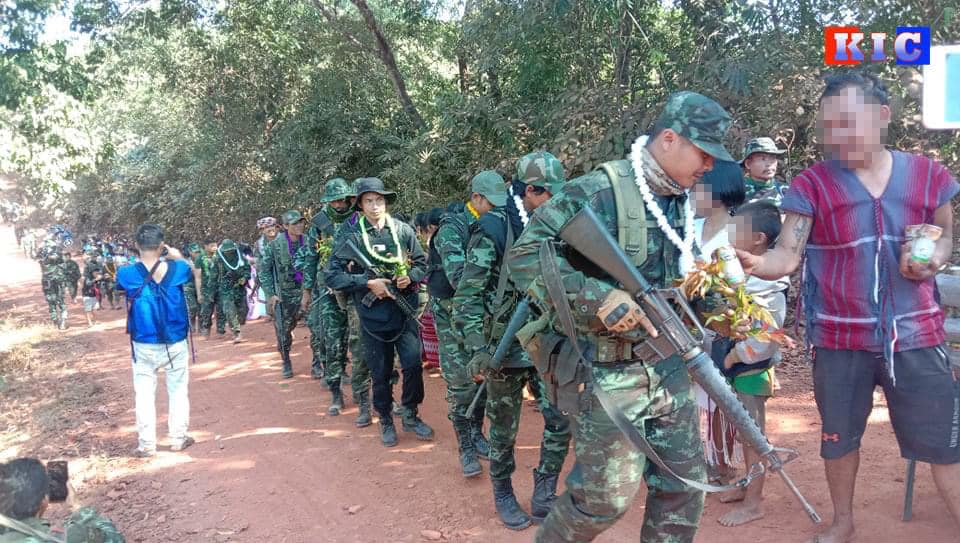
At the same meeting with officers and other ranks in Bago’s Pyay Township, Min Aung Hlaing called on military personnel to crush “violence” in solidarity with the people, claiming that People’s Defense Force (PDF) groups are using people as cover to fight the military. A sense of frustration was vivid in his voice.
This shows that Min Aung Hlaing is still in his own fantasy world.
In the wake of the coup, a mass boycott campaign was launched calling on shop owners not to sell to soldiers and police. At that stage, many might not yet have hated the military, even if they didn’t love it. But now, it would be difficult for most people to simply forgive and forget what the military has done since the coup, and is still doing.
Soldiers and police are well aware of how people view them now. So, they dare not go out in public alone. In cities, they have been forced to cower behind sandbag-fortified barracks, constantly on alert for grenade and gun attacks that can happen anytime. Min Aung Hlaing seems to be frustrated that people are supplying all the necessities—from uniforms to weapons—to the PDFs, which were born out of the people. Despite the junta’s atrocities over the past 20 months, people remain strongly determined to root out the military dictatorship.
Coup leader’s henchman takes control of USDP
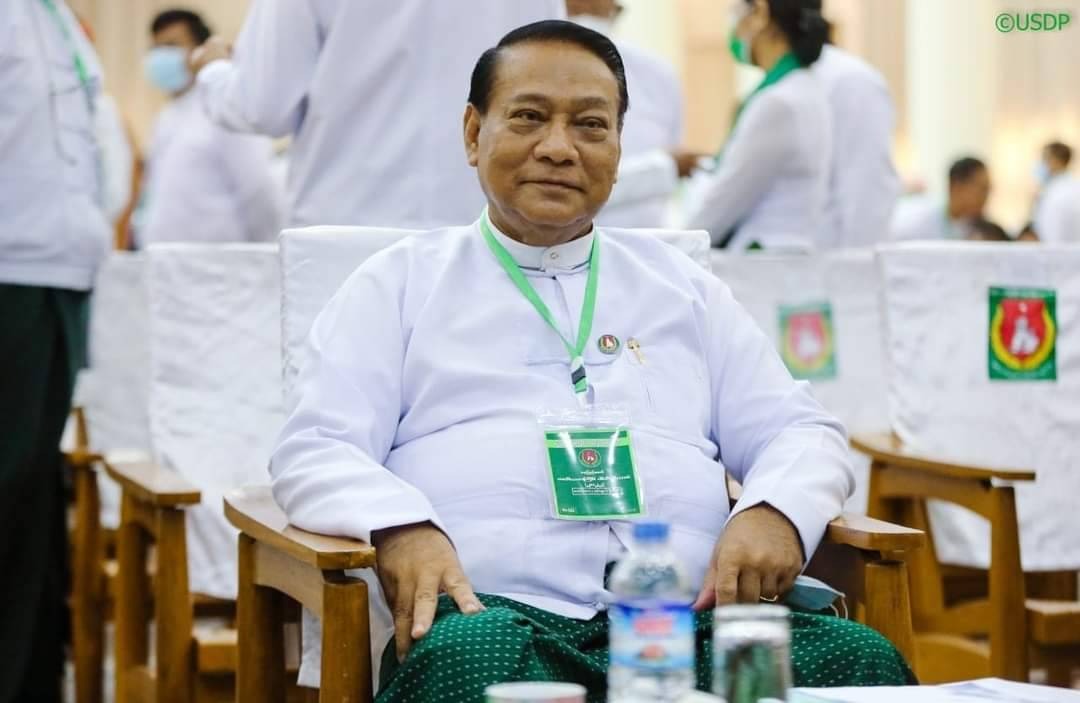
Myanmar junta leader Min Aung Hlaing has consolidated his control of the military proxy Union Solidarity and Development Party (USDP) so that he can become the country’s president, with the installation of his henchman, former Police Chief U Khin Yi, as the USDP chair this week.
The appointment of the new USDP leader came ahead of the election the regime plans to hold next year and which the National League for Democracy (NLD) said it would boycott. In the NLD’s absence, the USDP is likely to win. When the parliament resumes after the polls to choose the country’s president, Min Aung Hlaing will surely be nominated as a vice president by military representatives. If the winning USDP votes in parliament to elect Min Aung Hlaing as the president, his dream will be fulfilled.
Under U Khin Yi’s guidance, the USDP will have to do so. As the head of the winning party, he would become vice president-1, as his boss would take the top job. Then, Min Aung Hlaing would be able to rule the country for 10 years, as the constitution permits two terms.
These are the possible scenarios if things go according to Min Aung Hlaing’s plan. On the other hand, it’s hard to say whether the regime will be able to hold the election as planned, as it is still struggling to control the country. The NLD has rejected the poll, as do the majority of Myanmar people. The UN and the US have warned the election will be a fraud. Uncertainty is what the future holds for Min Aung Hlaing.


